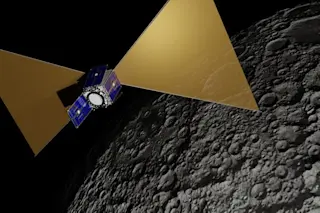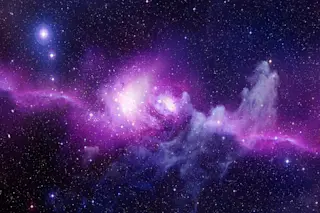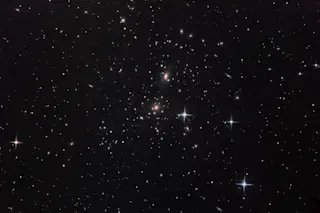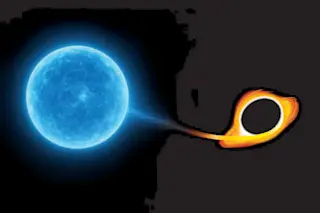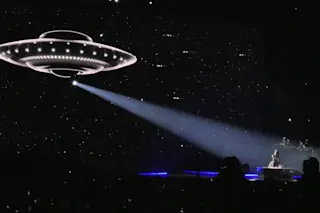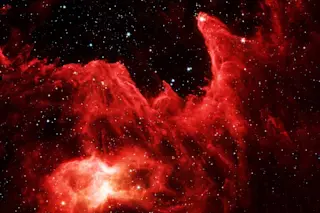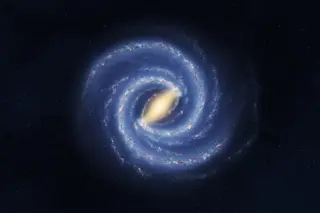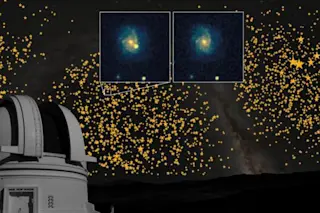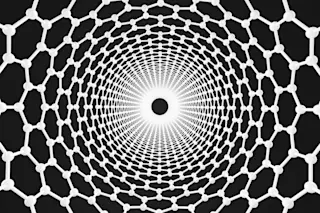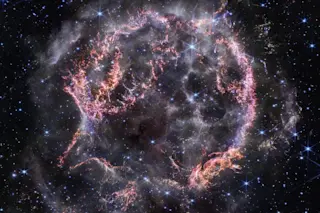Five-sixths of the universe is missing. That statement feels strange to write, and I'm sure it feels pretty strange to read as well. Given the vastness of the cosmos--and given how little of it humans have explored--how can we know for sure that anything is out of place? The claim sounds positively arrogant, if not delusional.
Color-coded, composite of the galaxy cluster Abell 520. Green denotes hot gas; orange highlights starlight from galaxies; blue shows the inferred location of dark matter. (Credit: NASA, ESA, CFHT, CXO, M.J. Jee, and A. Mahdavi) And yet scientists have assembled a nearly airtight case that the majority of the matter in the universe consists dark matter, a substance which is both intrinsically invisible and fundamentally different in composition than the familiar atoms that make up stars and planets. In the face of staggering difficulties, researchers like Samuel Ting of MIT are even making progress ...


